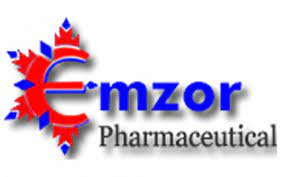Explore how Emzor’s multi-million-dollar pharmaceutical plant project not only aims to save valuable foreign currency but also contributes to improving healthcare and saving lives in Nigeria.Nigeria is poised to transform into a hub for Active Pharmaceutical Ingredients (API) manufacturing in sub-Saharan Africa, with the ambitious goal of achieving this milestone by the first quarter of 2024. This significant development is driven by a private-sector investment backed by the European Investment Bank (EIB), marking a crucial turning point in the country’s pharmaceutical landscape.
The transformation comes after decades of Nigeria grappling with a critical shortfall in its drug production process, heavily reliant on imports. Emzor Pharmaceutical Industries Limited has taken a pioneering step by securing a €13.85 million EIB loan to establish a $23 million API manufacturing plant, which is nearing completion.
The EIB loan covers up to 60 percent of the project, which will initially focus on the production of four essential anti-malaria APIs: artemether, lumefantrine, sulfadoxine, and pyrimethamine. This effort will create over 500 jobs and eventually extend into three more key areas, contributing significantly to Nigeria’s pharmaceutical manufacturing capabilities.
Construction engineers on-site have reported that the two-phased plant will be fully operational by February. Equipped with cutting-edge technology and a skilled workforce, the facility is set to produce 200 metric tonnes of APIs annually. This substantial volume will reduce Nigeria’s dependency on imports, considering that the country currently imports over 90 percent of its APIs.
To put this into perspective, the value of imported finished drugs, such as artemether/lumefantrine, grew from N6.4 billion in 2018 to N12.1 billion in 2021, based on data from the National Agency for Food and Drug Administration and Control (NAFDAC). For finished drugs like sulfadoxine and pyrimethamine, Nigeria’s imports increased from N453 million in 2018 to N1.3 billion in 2021.
Local production of these critical APIs offers several advantages, including eliminating a commercial transaction where profits are taken out of the value chain. This not only reduces costs but also provides Nigerian drug manufacturers with a competitive edge against imported products, primarily from India and China.
Emeka Okoli, Chairman of Emzor Pharmaceutical Industries, anticipates that at full operating capacity, local production will become significantly more cost-effective than imports. He highlights the dual benefit of saving on input costs and retaining profits within the Nigerian market, ultimately creating a more competitive landscape.
Another significant advantage of local API production is the ability to cater to smaller manufacturers that cannot afford large consignments required for foreign orders. This could have a profound impact on expanding access to APIs within the country.
In the past, the pharmaceutical industry has called for Nigeria to prioritize drug security, given the historical neglect of healthcare by successive governments. The high cost of APIs has been a significant challenge for the industry, further compounded by the devaluation of the Nigerian Naira. This cost inevitably trickles down to the price of finished pharmaceutical products.
The successful establishment of API production in Nigeria is expected to align with the pricing of Indian and Chinese competitors. It is also essential that the quality of locally produced APIs matches or exceeds the standards set by existing products in the market.
The estimated value of the pharmaceutical market in Africa is approximately $30 billion, as per the 2023 edition of the Africa Pharmaceutical Market Outlook. Surprisingly, Nigeria represents just 1.5 percent of this market, lagging behind South Africa (3.9 percent), Egypt (2.6 percent), Algeria (1.9 percent), and Morocco (1.6 percent).
Despite hosting about 150 pharmaceutical manufacturers, the highest in sub-Saharan Africa, only 25 percent of drugs available in Nigeria are sourced locally. This contrasts with South Africa, where approximately 80 percent of medicines are sourced locally, largely due to the presence of advanced technical infrastructure and adequate manpower for synthesizing essential APIs.
The need for self-sufficiency in pharmaceuticals became apparent during the COVID-19 pandemic when the supply chain of key raw materials was disrupted. Nigeria and other African nations were forced to rely on aid to access life-saving vaccines. Additionally, non-communicable diseases have been on the rise, with African countries, including Nigeria, contributing significantly to the global burden.










